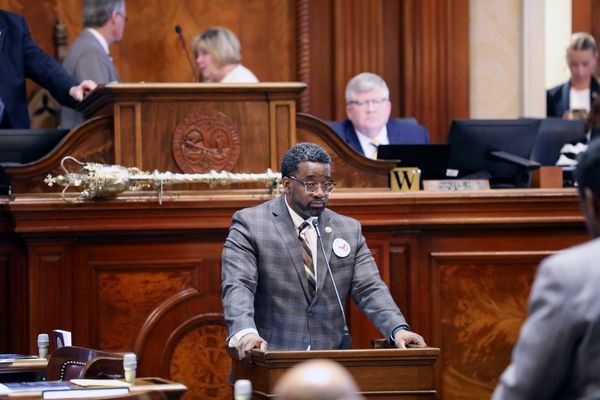A number of Merseyside families will be in line for council tax rebates after it emerged that the Chancellor will cut council tax bills.
Millions of households in England will get £150 off their council tax bills, the Chancellor Rishi Sunak today announced.
Everyone who lives in council tax bands A-D will see a discount automatically applied to their bill in April.
READ MORE: Thousands of 'horrendous' fly tipping cases as culprits get away with it
Mr Sunak made the announcement in the Commons at 11am.
Across Merseyside, there were 315,580 properties in Band A, 137,440 in Band B, and 112,680 in Band C, as of September 13, 2021.
That means a potential 565,700 families could be in line for a rebate. These families make up 85% of all households in Merseyside.
But Liverpool City Council's Deputy Mayor and Cabinet member for finance and resources, Cllr Jane Corbett, believes the Chancellor's move will only go so far to help lower income families in Liverpool.
Cllr Corbett told the ECHO: "The Chancellor’s announcement is a sticking plaster and will only partially alleviate the crisis that our lowest income families are facing. A third of households in Liverpool are already in fuel poverty and the rise in energy prices combined with food and other essentials will make life even more difficult.
"The government has cut £37 billion from welfare benefits across the country, affecting not just those who are unemployed but also the 36% of people in Liverpool who are in work and get Universal Credit because they are on a low income.
"The sheer scale of the number of families in Liverpool who need help to make ends meet is huge, including 67,000 households who we give financial assistance to in order to reduce their Council Tax bills.
"We have lost around two-thirds of our overall funding over the last decade and need to find another £34 million next year to balance the books. We are in an impossible position because if we don’t raise Council Tax we will have to cut more frontline services, which will impact the most vulnerable the most.
"Like many other councils, our situation means it is really difficult for us to put in additional funding for our Citizens Support and Discretionary Housing Payment schemes which help people in a financial emergency.
"Things have got to change dramatically if we are to stand any chance of reversing this ever deepening cost of living crisis. We need an end to the decade of austerity, for the government to fund local authorities properly and to commit to a healthy standard of living for all using the Marmot Principles to alleviate poverty."
£150 million has also been allocated to local authorities to give to people who may slip through the net, such as lower income households who live in higher council tax bands, or those who live in bands A-D but are exempt from the tax.
As there are 333 local authorities in the UK, this works out at around £450,000 per council - if divided equally.
If you are unsure of your council band, you can find out which one your home comes under here.
Other support schemes unveiled today include a £200 loan to help people with soaring energy bills.
All domestic electricity customers will see a £200 "discount" on their energy bills in October.
However, this will be automatically repaid from people's bills in equal £40 instalments over next five years.
68% of councils in England were considering raising their council tax to the maximum amount permitted without a referendum
Across England, 16.4 million households are in Bands A to C - 65% of the total.
The Chancellor revealed in his October Budget that local authorities in England could increase Council Tax by up to 3% without a referendum this April.
The maximum permitted for 2022/23 bills is a 2.99% increase, including the 1% social care precept for upper and single tier authorities and 1.99% for general council tax. District councils may choose the greater of a 1.99% or £5 rise.
Many councils are expected to raise it by the maximum amount after losing precious revenue due to the Covid-19 pandemic.
Last month the Local Government Chronicle reported that its analysis of 50 councils' plans found 68% were considering raising their council tax to the maximum amount permitted without a referendum.
The average Band D council tax set by local authorities in England for 2021/22 was £1,898.
This means the average Band A council tax was £1,265 last year, and £1,476 for Band B, and £1,687 for Band C.
If councils introduce a 2.99% rise next year, these could go up by £38, £44 and £50 a year respectively.
However, there are big variations in the size of your council tax bill depending on where you live.
In Westminster, a Band A council tax bill is just £553 a year, while in Nottingham, it’s £1,484.
Just 1% of properties in Westminster are in Band A, compared to 62% in Nottingham.







